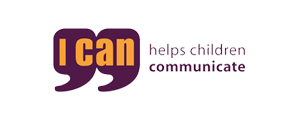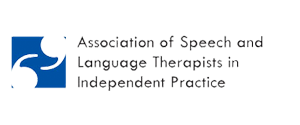Sounds produced further front of the mouth such as /t/ and /d/ are replaced by sounds made towards the back of the mouth such as /c/ and /g/.
Phonological disorder
A phonological disorder is a type of speech sound disorder that is used to describe children who do not follow the typical pattern of speech development. Children with a phonological disorder may produce sound errors when producing words that are not seen in the speech development of typically developing children.
Our speech and language therapists can assess your child’s speech skills to identify what speech errors your child is making as well as the impact of these errors on your child’s communication skills. Our speech and language therapists use the information from the assessment to create a therapy programme that works on removing atypical speech errors identified in your child’s assessment as well as increasing the overall clarity of your child’s speech.
Speech and language therapy can help your child to produce speech that can be understood by others by reducing and removing their use of non-developmental phonological errors as well as delayed developmental phonological errors.
What is a phonological disorder?
A phonological disorder occurs when a child struggles to understand the sound system and the rules surrounding speech. This is usually something most children achieve naturally, however children with a phonological disorder may need therapy to be taught how to use their sound system appropriately. Children who have a phonological disorder may produce a sound or some sounds correctly in one word but then struggle to produce the same sound or sounds in other words. Some children may say the ‘s’ in sun but struggle to produce the ‘s’ in pass.
There are two types of phonological disorders:
Consistent phonological disorder
The child presents with phonological errors that are idiosyncratic (specific to the child) or unusual and are not seen in typically developing children. The child may also present with delayed developmental phonological errors that are not typical for their age range.
Inconsistent phonological disorder
The child presents with phonological errors that are unusual, or idiosyncratic (specific to the child), as well as possible delayed developmental phonological errors. In addition to this the child’s production of single words shows high variability, for that reason the child may produce one word in many different ways.
A phonological error (process) is the name given to error patterns or simplifications of speech used by children in speech development. Many phonological processes are developmental and are normal part of speech development. As a child’s speech matures and develops these phonological errors start to fade out and eliminate. If a child presents with these errors 6 months after they should have eliminated the child may have a phonological delay. A child who has a phonological disorder may present with a phonological delay as well as unusual or idiosyncratic (specific to the child) phonological errors.
Developmental phonological errors
Developmental phonological errors are error patterns in children’s speech that are normal and occur as part of the speech development process. These error patterns start to fade out as children get older and their speech sound repertoire increases. Developmental phonological errors include:
- Reduplication
- Consonant harmony
- Context-sensitive voicing
- Devoicing
- Fronting
- Final consonant deletion
- Cluster reduction
- Weak syllable deletion
- Stopping
- Gliding
Unusual phonological errors
Backing
Initial consonant deletion
When the initial consonant in a word is not produced (omitted).
Glottal replacement
When a consonant sound is replaced by a stop sound produced in the glottal.
Glottal insertion
When a stop sound made at the glottal is put into the child’s production of a word.
Metathesis
The order of the consonants in a word is altered.
Affrication of plosives
When a plosive sound is produced as affricate.
The speech of a child who has a phonological disorder is often unclear and difficult to understand, especially for peers and those adults who are unfamiliar with the child. Children who present with high variability in the production of their words may be harder to understand as well as misunderstood as a pattern may not have been established. The severity of a phonological disorder can vary between children, some children’s speech may be unclear, whereas others may only have a few minor errors. Research has also suggested that children with a phonological disorder struggle with literacy and reading skills.
Impact of a phonological disorder
A phonological disorder can impact a child’s speech and other aspects of their life, for example:
- Unintelligible speech.
- Increased chances of being misunderstood by others.
- Difficulties with social aspects of life that require speech.
- Possible difficulties with literacy and reading skills.
- Increased frustration.
- Reduced confidence levels.
- May require longer to respond and produce speech.
- Long term impact on social, academic and vocational well being.
Our speech and language therapists can help children who have a phonological disorder by providing a therapy programme that works on increasing their intelligibility to others. Our speech and language therapists aim to create a therapy programme that can be implemented across the child’s communicative settings.
Speech and language therapy available for phonological disorder
Our speech and language therapists can provide your child with a therapy programme that is individualised to their specific speech difficulties. Our speech and language therapists aim to provide a therapy programme that works on your child’s goals and implements their motivators. Our speech and language therapists aim to work alongside you and your child’s school to create a therapy programme that implements yours and the school’s priorities.
Speech and language therapy available includes:
- Individual therapy.
- Group therapy.
- Support, strategies, advice and training for parents, carers , teachers and other professionals.
- Speech therapy
- Augmentative and Alternative Communication
- Cued therapy.
Next steps:
If you think your child has a phonological disorder or have been alerted to this by a teacher or another professional email office@sltforkids.co.uk or call 0330 088 2298 to speak to one of our professional speech and language therapists.








